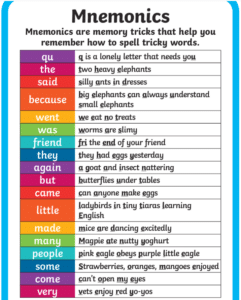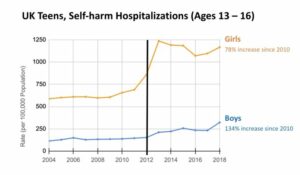How It Works 2025
Tutoring children to learn and love the journey!
Honesty-Commitment-Professionalism-Patience
About Us
Howard Jones:
Founder: I’ve been teaching since I left university as I discovered that I loved to help children learn. I have now tutored 6- to 16-year-olds for 17 years. I enjoy politics, running and reading but not at the same time! I am married to Linda and we have two fantastic children.
Linda Jones:
Founder: I have a huge amount of primary experience, having been a class teacher and Literacy Co-ordinator in West Sussex, and Literacy Development teacher here in Portsmouth. I love tutoring and find working with children energising! I also offer a Dyslexia risk assessment.
What We Offer
- A FREE Assessment for every child
- Expert, qualified tutors who are dedicated to help your child progress
- One to one tuition for each student and an individual plan for every lesson within a small group setting. Children are taught individually.
- Fun ways to learn through structured worksheets, text books and computer activities tailored for your child
- Homework is set and marked every week
- A dedicated learning space with a bit of ‘I Love to Learn’ magic
- Honest, regular feedback and re-assessment of progress
Loving to Learn: Activities and tasks that your child Can Do!
After the assessment, we use your child’s results to create an individual plan for them. It will focus on any areas of weakness and allow us to set work at the right level. We will give your child work that they can do so their confidence, and feeling of success, returns.
Homework
Homework is set to practise and repeat their learning- this helps them to retain it!
Our tutors will re-design their plan each week so they can continue to work on the areas of weakness, consolidate learning and extend it further. We see the greatest progress from children who are with us for six to nine months.
Honest Feedback
We will give honest verbal feedback at the end of every session if requested. Once the child has reached the goal agreed, we will recommend that they be re-assessed or graduated from the programme.
Real Teachers (Fully Qualified)
Our tutoring consists of 80 minutes of one-to-one tuition in a small group setting with a fully qualified teacher. All our tutors are experienced and qualified teachers. We also give them full training in our ‘I Love to Learn’ teaching method.
Weekly during Term Time
Children need regular sessions to make progress and remember the new things they are learning. Memory issues often hold children back and so regular attendance is essential. The homework is there to repeat the work they have covered as an extra memory prompt.
Catch Ups
If you wish to cancel a lesson and reschedule, please contact us. While your child is enrolled, you will be issued with a catch-up session to be taken at another convenient time. Please note that if a catch-up is booked but not attended, the make-up credit will have been used, so do rearrange rather than not attend.
Safeguarding Policy Statement Jan25
I Love to Learn Professional Tuition
Child Protection Safeguarding Statement Policy
Policy Statement (updated 17/1/2025 Linda.Jones)
I Love to Learn Professional Tuition Centres, aim to offer a safe environment in which children can learn and develop. Children, young people and vulnerable adults involved in the Tuition Centre programmes have the right to protection from harm. I Love to Learn Professional Tuition Centres will seek to ensure the safety and protection of all children, young people and vulnerable adults involved in its activities through adherence to this Child Protection Statement.
Key Principles
- The welfare and protection of children and young people who are students of I Love to Learn Tuition Centre, must be the first consideration of every person involved in the provision of our education programmes.
- I Love to Learn Tuition Centres will practice safe recruitment in checking the suitability of staff to work with children and young people.
- I Love to Learn Tuition Centres will raise awareness of safeguarding issues so that every person involved in the provision of the tuition understands their moral obligation to protect children and young people from harm, abuse and exploitation.
- I Love to Learn Tuition Centres has adopted a Code of Conduct which every person involved in the provision of tuition must comply with. The code is set out later in this policy.
- Every person involved in the provision of tuition has a responsibility to be aware of the procedures to follow should a disclosure be made to them or if they have concerns. The procedures outlined in this policy should be commenced without delay.
- Safeguarding concerns occur in all cultures, racial and religious groups. All staff have a responsibility to be sensitive to and respectful of ethnic and cultural backgrounds, however, these factors must not be used as a reason for non-intervention.
- I Love to Learn Tuition Centres will endeavour to keep up-to-date with national developments relating to the care and protection of children, young people and vulnerable adults and will amend this policy as may be appropriate to comply with current best practice.
- I Love to Learn Tuition Centres has adopted Child Protection Procedures to protect children and young people involved in tuition. The procedures are set out later in this policy.
Code of Conduct
Every person engaged in the provision of the education programmes must abide by the following Code of Conduct:
Teachers and employees should:
- Be aware of situations which may present risks and manage those.
- Plan and organise work and the workplace to minimise risks.
- As far as possible, be visible when working with students. Do not spend time alone with children away from others.
- Ensure that a culture of openness exists to enable any issues or concerns to be raised or discussed.
- Ensure that a sense of accountability exists between staff so that poor practice or potentially abusive behaviour does not go unchallenged.
- Talk to students about their contact with staff or others and encourage them to raise any concerns.
- Empower students by discussing with them what they can do if there is a problem.
Teachers and employees must never:
- Hit or otherwise physically assault or physically abuse students.
- Use physical force against a participant, unless it constitutes reasonable restraint to protect your self or another person or property from danger or harm. In this situation the minimum amount of force should be used for the minimum amount of time and a report of the incident should be recorded in writing immediately afterwards.
- Develop physical/sexual relationships with students.
- Develop relationships with students which could in any way be deemed exploitative or abusive.
- Act in any way that may be abusive or may place a student at risk of abuse.
- Use language, make suggestions or offer advice which is inappropriate, discriminatory, offensive or abusive.
- Behave physically in a manner which is inappropriate or sexually provocative. There may be rare occasions when a student, particularly a young child, is distressed and needs physical comforting – discretion must be used to ensure that this is appropriate and any contact is necessary and justified.
- Take a student with whom they are working to (or allow a student to stay overnight at) their home.
- Give students alcohol, cigarettes, drugs or other stimulants.
- Do things for students of a personal nature that they can do for themselves (e.g. taking them to the toilet). In the case of very young children it may be necessary for them to be offered assistance in using the toilet – this assistance should, wherever possible, be provided by someone of the same sex and discretion should be used so that any assistance is appropriate and any contact is necessary and justified. Prior parental consent should always be obtained.
- Act in ways intended to shame, humiliate, belittle or degrade a student or otherwise engage in any form of emotional abuse.
- Discriminate against, show deferential treatment, or favour particular students to the exclusion of others.
- Conduct a one-to-one lesson with a student without another person present. If there is only one student in a lesson, the session should by moved to another session unless there is another person present in the centre.
This is not an exhaustive or exclusive list. The underlying principle is that actions or behaviour which may constitute poor practice, or potentially abusive behaviour should be avoided.
Safeguarding Procedures
- Safer Recruitment Policy
- When undertaking any recruitment process, I Love To Learn Tuition Centres will take the following steps:
- All job descriptions and person specifications will include a specific reference to suitability to work with children and young people and refer to the responsibility for safeguarding and promoting the welfare of children and young people.
- Comprehensive information from applicants will be obtained and scrutinised and any discrepancies or anomalies will be investigated and resolved.
- Independent professional and character references relating to an applicant’s suitability to work with children and young people will be obtained.
- A face-to-face interview will be held with all successful applicants prior to engagement.
- The identity, qualifications and previous employment history of the successful applicant will be verified before appointment.
- A check will be made to confirm the right of the successful applicant to work in the United Kingdom before appointment.
- Where the successful applicant has lived outside the United Kingdom, such further checks as are considered appropriate will be carried out before appointment.
- A check will be made on the successful applicant’s mental and physical health.
- A disclosure (enhanced DBS) certificate check will be carried out in respect of the successful applicant before appointment, if not already on the update service. All employees must be on the update service for annual checks to be made.
- Any offer of employment or engagement will be made conditional upon the satisfactory completion of the above checks and verifications.
The I Love To Learn Tuition Centres will ensure that:
An individual will not be recruited to work at the centre where they are named on any of the following lists:
o The Protection of Children Act (PoCA) List (England and Wales);
o List 99 (England and Wales);
o The Protection of Vulnerable Adults (POVA) List (England and Wales);
o The Disqualified from Working with Children List (DWCL – Scotland);
o The Disqualification from Working with Children List (Northern Ireland); and
o The Disqualification from Working with Vulnerable Adults List (Northern Ireland).
- An individual who is appointed and subsequently found to be named on any of these lists will be removed from the position forthwith.
An individual will be referred to the appropriate List where the grounds for referral under the Acts are met.
- Types of Abuse
Definitions of Abuse
I Love To Learn Tuition Centres recognises the following as definitions of abuse:
Physical Abuse
When an adult, or sometimes an older child, deliberately injure a child or fail to prevent physical injury (or suffering) to a child. In addition to physical injury this includes giving a child alcohol or drugs.
Neglect
When parents fail to meet a child’s basic needs for food, warmth, clothing or medical attention or fail to protect the child from exposure to danger. Neglected children may be withdrawn or very aggressive and may develop health problems such as non-organic failure to thrive.
Sexual Abuse
When an adult, or sometimes an older child, uses a child for sexual gratification. This might mean touching a child in a sexual way, forcing a child to carry out sexual acts, deliberately showing a child adult pornographic videos or magazines and filming or photographing children in a sexual way. Both boys and girls are sexually abused, and it can happen to very young children as well as older ones. The child may be dependent or developmentally immature.
Psychological and Emotional Abuse
When parents continuously fail to show love and affection to a child causing the child severe adverse side effects on emotional and behavioural development. This might include sarcasm, threats, criticism, yelling and taunting. All abuse involves some emotional ill treatment. This category should be used where it is the main or sole form of abuse.
- Awareness of Actual or Likely Occurrence of Abuse
There are a number of ways in which safeguarding concerns become apparent:
- A victim discloses abuse.
- Someone else discloses that a student has told him/her or that he/she strongly believes a student has been or is being abused.
- A student may show signs of physical injury for which there appears to be no satisfactory explanation.
- A student’s behaviour may indicate that it is likely that he/she is being abused.
- A colleague’s behaviour or the way in which he/she relates to a student causes concern.
- Receiving Allegations of Abuse
If a child or young person makes a disclosure about possible abuse you are advised to:
- Listen carefully and stay calm.
- Do not interview the child, but question normally and without pressure, in order to be sure that you understand what the child is telling you.
- Do not put words into the child’s mouth or promise anything.
- Reassure the child that, by telling you, they have done the right thing.
- Inform the child that you must pass the information on to “someone who can help” (e.g. the police or the Child Protection Officer (but do not specify whom, to avoid alarming the child, particularly if they are very young.
- Make a detailed note of the date, time, place, what the child said and did, your questions etc. This should not normally be done in the presence of the child as it may be intimidating for them. The Incident Form (see Appendix I) is designed to help you do this. Teachers or employees should not investigate concerns or allegations themselves but should follow the reporting procedure which is outlined below.
- Procedures for Responding to Concerns about Abuse/ Neglect
The centre has a designated Child Protection Lead (CPL). Currently Linda Jones. It is the CPL’s role to monitor and implement this policy and deal with reports of safeguarding concerns. The reporting procedure differs depending upon the role of the person making the report.
Reporting Procedure for Tutors.
- If a tutor or employee has any safeguarding concerns about a student they should contact the Designated Safeguarding Lead (DSL) Linda Jones as soon as possible.
- If a member of staff has safeguarding concerns, or has received allegations of abuse from a student or third party, they will need to complete an Incident Form (see Appendix I) and send it to the designated DSL
- Upon receipt of the Incident Form the DSL will check its content and, if necessary, refer to the originator to clarify and further discuss the situation.
- The DSL must then assess and refer concerns to MASH without delay.
- If the DSL is unavailable for any reason, the person witnessing the Incident, or receiving the allegation from the child, should contact MASH themselves immediately. Then, as soon as possible, they should inform the CPL.
Contact information current 17/1/2025
Portsmouth
Multi-Agency Safeguarding Hub (MASH) 02392 688793
Out of Hours; 03005551373
Email: mash@portsmouthcc.gov.uk
LADO (Chas Smith) 02392 882500
Email: LADO@portsmouthcc.gov.uk
Hampshire (Fareham and Havant)
Multi-Agency Safeguarding Hub (MASH) 0300 555 1384
Out of Hours; 03005551373
Email: childrens.services@hants.gov.uk
LADO: 01962 876364
Email: LADO@portsmouthcc.gov.uk
It is recognised that hastily or ill-informed decisions in connection with an alleged child protection issue can irreparably damage an individual’s reputation, confidence and career. Therefore, those dealing with such allegations within I Love To Learn Tuition Centres will do so with sensitivity and will act in a careful and measured way.
Every effort will be made to maintain confidentiality and guard against unwanted publicity while an allegation is being investigated or considered.
- Protection of Those Reporting Care and Protection Concerns
The law protects those who report care and protection concerns from actions by those individuals who have been implicated in the abuse, harm and/or neglect of a child or young person as long as the report was not malicious or vexatious.
- Data Protection and Management of Confidential Information is outlined in the DATA Protection policy. IL2L is committed to managing confidential information in accordance with the requirements of the Data Protection Act 1998. Children and young people have a right to confidentiality unless IL2L Centres consider that they could be at risk of abuse and/or harm.
- Photography and sharing images. Photographs will only be taken with the permission of children and parents. No images will be used for purposes that are prohibited by parents. Permission will be sought at enrolment.
- Online tuition. When tutoring one to one online, children will be expected to be in a room with open access and have an adult nearby.
- Anti bullying. I Love to Learn is opposed to any form of bullying or harassment. Tutors have a duty of care to report and challenge any suspected bullying and to ensure children feel safe and cared for while being tutored.
Child-on-Child Abuse Policy
ILTL has zero tolerance for any form of child-on-child abuse, including bullying, physical harm, and cyberbullying.
All incidents must be reported to the CPL for appropriate intervention, which may involve external referrals to relevant agencies.
Preventative measures include awareness training for staff and creating an environment where children feel safe to report concerns.
Whistleblowing Policy
ILTL encourages staff and volunteers to report concerns about unsafe practices or misconduct.
Reports can be made anonymously to the CPL or an external organization, such as the NSPCC helpline.
No individual will face repercussions for raising genuine concerns in good faith.
Support mechanisms include access to the CPL, confidential discussions, and external resources.
Contact Information for Whistleblowing and Support:
- NSPCC Helpline: 0808 800 5000
- Portsmouth City Council Whistleblowing Hotline: 023 9283 4702
- Email: whistleblowing@portsmouthcc.gov.uk
Review and Monitoring
This policy is reviewed annually or sooner if required by legislative changes.
Last Reviewed: 17//2025
Designated Safeguarding Lead, DSL: Linda Jones
Contact Information:
- Email: linda@ilovetolearn.co.uk
- DSL Phone: 07966553042
Signed:
Dated;
Appendix I
Incident Report Form
Date, time and place of disclosure,;
Name and position of person about whom the report, complaint or allegation is made;
Name and age of child involved;
Nature of incident, complaint or allegation (continue on a separate sheet if necessary)
What questions did you ask the child (continue on a separate sheet if necessary)?
What did the child do/say (continue on a separate sheet if necessary)?
Action taken (continue on a separate sheet if necessary)
If Police or Children’s Social Care Services contacted, name, position and telephone number of person handling the case and date and time referred
Name and position of person completing the form
Contact telephone number
If the decision was taken not to consult with a relevant statutory agency, why was this
decision taken?
Signature of person completing the form
Date and time completed
20th Anniversary Party Portsmouth Centre
A Day to Remember: Celebrating 20 Years of Learning in Southsea

On Saturday 28th July, we marked a truly special milestone — the 20th anniversary of I Love to Learn! What began in 2005 as a small, family-run tutoring service in Southsea has grown into a thriving community of learners, teachers, and families across Portsmouth, Fareham, and Havant.
We were honoured to celebrate this occasion with so many of you at our Portsmouth Centre. A heartfelt thank you to all the parents, children, tutors, and friends who joined us — your support over the years is what made this celebration possible.
A highlight of the day was the visit from the Lord Mayor and Lady Mayoress of Portsmouth, who joined us for cake-cutting, a lively spelling bee, and plenty of fun. Their presence made the event all the more memorable, and we’re incredibly grateful they took the time to support our work with local children.
From the smiling faces of students past and present to the warm conversations with parents and tutors, the day was full of joy and reflection. We had games, refreshments, memory boards, and even a few surprises — all to honour the incredible journey we’ve been on together over the last two decades.
Looking Back on 20 Years
When we — Howard and Linda Jones — launched I Love to Learn in 2005, it was with a simple but powerful aim:
- To help children grow in confidence through learning
- To support families with integrity
- And to be honest about what children really need to succeed
We started with just a handful of local students and a big dream. Today, we’re proud to operate three vibrant centres and work with a team of tutors who share our values and passion.
Tutors like Grazia Naylor in Fareham, and David Byrne, Adam Ashworth, and Maxine Burch in Portsmouth bring not only subject expertise but also genuine care and commitment to every child they teach. Their work, and the trust you place in us as parents, is what allows us to keep making a difference.
Our Promise to You
At I Love to Learn, we remain committed to the principles that got us started: honesty, personalised support, and a deep belief in each child’s potential. We’re not about gimmicks or grand promises — we’re about doing the right thing, one student at a time.
As we celebrate this 20-year milestone, we’re also looking ahead — to continue growing, improving, and helping children become confident, capable learners who can take on the world.
Thank You
Whether your child came to us this year or ten years ago, whether you’ve stayed for a few months or many years — thank you. Your trust and partnership mean everything to us.
And to the Lord Mayor and Lady Mayoress of Portsmouth: your presence and kind words were a great encouragement to all who attended. Thank you for helping us mark this milestone with such grace and warmth.
Here’s to the next 20 years of learning and growing together!
With heartfelt thanks,
Howard & Linda Jones
Co-founders, I Love to Learn
www.ilovetolearn.co.uk/free-assessment
Helping children love learning since 2005
Finding the Best School for Your Child
A Quick Guide to Choosing the Right School
A child’s education is a very high priority for most parents, but there are so many considerations. Of course, fees, cost of travel, and maybe even moving house have to be taken into consideration. This is a very big topic, so here are some suggestions.
Research: What Are the Options?
 School type, cost, location, and culture—there are many factors to consider, so it’s time to make a list. It will need to be affordable, although do not despair; many private schools offer scholarships to the right candidate. If you are thinking of a fee-paying school, make sure you find out exactly how to apply for a scholarship and what the criteria are, as it will vary from school to school. Of course, you will want to choose the best school academically, but there are lots of other considerations.
School type, cost, location, and culture—there are many factors to consider, so it’s time to make a list. It will need to be affordable, although do not despair; many private schools offer scholarships to the right candidate. If you are thinking of a fee-paying school, make sure you find out exactly how to apply for a scholarship and what the criteria are, as it will vary from school to school. Of course, you will want to choose the best school academically, but there are lots of other considerations.
For all school choices, it is important to do your research. This is much easier nowadays with so many great websites:
– Locrating
– Good Schools Guide
– School Performance Tables
Talk About It: Time for a Family Meeting
If the child is older, you might want to consult with them. Where are his or her friends going? Is there a sport he or she wants to play? Where do most students go on to afterwards? Again, the emphasis needs to be on matching the child’s needs to the school, so make sure it is clear that is the aim. Of course, it will be up to the parents to make the final decision, but it is usually good to hear everyone’s opinion.
Visit, Ask, and Meet
There is no substitute for visiting an institution to get the feel of it. Go on the open days, talk to the pupils and teachers, and ask as many questions as possible. This will give you a lot of ‘soft’ information about the ethos and culture which you can’t pick up from a glossy brochure. Are the students confident to answer questions? Do they respect the teachers, and what kind of expectations do they have?
You do not want to feel that you are fighting against the school ethos when you visit and talk to teachers. Your child is going to spend a lot of time at school, which you hope will have a very positive influence on them for much of their early life.
—
Summary
Choosing the right school for your child involves considering various factors such as cost, location, and school culture. Begin by researching your options using online resources, and don’t forget to look into scholarship opportunities. Engage in family discussions to ensure the school meets your child’s needs and aspirations. Finally, visit schools, talk to students and teachers, and ask plenty of questions to get a true sense of the school’s environment and values.
What is a T-Level Vocational Qualification?
Explaining T-Level Qualifications
 The T-Level qualification is a new technical education route introduced in the UK, designed to offer students a vocational alternative to A-Levels. You may have heard of BTECs which they are designed to replace. The T-Level is designed to give 16-18 year olds more work experience and more access to challenging vocational qualifications. The main difference is the amount of time the qualification allows for students to work in industry.
The T-Level qualification is a new technical education route introduced in the UK, designed to offer students a vocational alternative to A-Levels. You may have heard of BTECs which they are designed to replace. The T-Level is designed to give 16-18 year olds more work experience and more access to challenging vocational qualifications. The main difference is the amount of time the qualification allows for students to work in industry.
T-Levels are two-year technical courses that combine classroom learning with industry placements. They were introduced to provide young people with practical skills and experience needed to succeed in the workplace. T-Levels were launched in September 2020, with the aim of offering 25 different subjects by 2023.
Example Subjects
Digital Production
Agricultural, Environmental and Animal Care
Catering and Hospitality
Construction
Creative and Design
Health & Science
Education and Childcare
Sales, Marketing Procurement
Engineering and Manufacturing
Business Administration
Legal, Finance Accounting
Strengths
1. Industry-Relevant Skills: T-Levels are designed in collaboration with employers to ensure that students gain the skills and knowledge needed in the workplace.
needed in the workplace.
2. Work Placement: Each T-Level includes a substantial work placement, giving students real-world experience and helping them build valuable connections in their chosen industry.
3. Clear Pathways: T-Levels offer clear pathways to employment or further study, providing students with a direct route into their chosen career.
4. Recognition: T-Levels are recognised by many universities and employers, providing students with a credible qualification.
Summary
T-Levels are still relatively new, and there may be some stigma attached to vocational education compared to traditional academic routes like A-Levels. Some students have been disappointed that they have not been as widely accepted by universities as promised. While there are plans to expand the range of subjects available, the initial offering of T-Levels is limited compared to the wide range of subjects available through A-Levels. This has improved more recently with the release of more qualifications, however, the resourcing and teaching of each subject my vary.
It is will be important for students and parents to make sure that the course they apply to has good quality teaching and is properly resourced. Also, be aware that students will need to do 315 hours of work placement. These placements are an important part of the course, but again may vary in quality. Make sure the institution is well organised to place students is appropriate positions as this will have a big impact on the student’s experience.Overall, T-Levels offer an innovative approach to technical education in the UK, providing students with valuable skills and experience to succeed in their chosen careers. However, there are still challenges to overcome in terms of implementation and perception.
Fun Spelling Rules
Making Spelling Fun
One of the ways we can help students with their English is by having some fun with some commonly misspelt words. In many exams marks are allocated for spelling, it also builds confidence to know that you have spelt a word correctly without resorting to spellchecker.
I had a rather eccentric school English teacher who believed that if you could spell ACCOMMODATION (two C’s and two M’s) you would pass your O level and he made the whole class recite it most lessons.
 Alternatively you could just test each other over a meal or on the way to school, we all love a challenge and the rules mean ‘no phones’.
Alternatively you could just test each other over a meal or on the way to school, we all love a challenge and the rules mean ‘no phones’.
Here are a few you might want to test each other on:
SEPARATE is a tricky word, two A’s separated by a P.
Big Elephants Are Usually BEAUtiful.
I before E except after C applies to BELIEVE, FRIEND and RECEIVE.
You can DEFINITELY find the word with FINITE in it.
Do you go Really Red And Smile Shyly when EMBARRASSed?
You certainly do if you are caught short with DIARRHOEA, you need to Dash In A Real Rush, Hurry Or Else Accident.
You can even put some words to music as RHYTHM Helps You To Hear Music.
Give it a go, no need for a special OCCASION (although if it is you’ll need to travel over two seas (C’s) to get to it.
To enhance students’ spelling, incorporate fun practices with tricky words, as exam scores often include spelling accuracy, boosting confidence without spellcheck reliance. An eccentric English teacher swore mastery of “ACCOMMODATION” ensured exam success. Engage in spelling challenges during meals or commutes without phones. Practice words like “SEPARATE,” with mnemonic aids like “Big Elephants Are Usually BEAUtiful” for “BEAUTIFUL,” and the rule “I before E except after C” for words like “BELIEVE.” Reminder mnemonics for “EMBARRASSED” and “DIARRHOEA” can assist recall, as can setting words like “RHYTHM” to music. Use these techniques anytime, not just for special occasions.
Why Are They Banning Mobile Phones?
Why Schools are Banning Mobile Phones and What You Need to Know
You might have caught wind of the new guidance from the government in the news or through other parents, but what’s the fuss about? The guidance says that the government backs headteachers who choose to ban mobile phones from the school premises from Feb 19 2024. Is your headteacher clamping down on phone use, and what does it mean for your child? Let’s break it down.
 Firstly: Why are schools banning mobile phones? Well, it turns out there’s a lot more to it than just a knee-jerk reaction to the latest tech craze. In fact, researchers like Anderson and Jiang have been shedding light on the impact of excessive screen time on children’s mental health.
Firstly: Why are schools banning mobile phones? Well, it turns out there’s a lot more to it than just a knee-jerk reaction to the latest tech craze. In fact, researchers like Anderson and Jiang have been shedding light on the impact of excessive screen time on children’s mental health.
So, what’s a concerned parent to do? Here’s what you need to know:
Teachers have the authority to confiscate mobile phones in schools from your child, so it is important to be aware of this. If you child needs a phone for essential communication outside schools, you may need to make an arrangement with the school. Many schools allow children to drop off their phone at the beginning of the school day at the school office.
1. **Distraction Detox:** One of the primary reasons schools are banning mobile phones is to minimise distractions in the classroom. It’s no secret that a buzzing phone can derail even the most focused student. By limiting phone use during school hours, educators hope to create a more conducive learning environment.
2. **Social Connection vs. Social Media:** Many teachers have noticed that heavy screen use has reduced children’s ability to communicate face to face. They are reading less and are poorer at explaining and describing. It has been suggested that children (and adults) are now more use to showing each other images, rather than describing events or ideas. It is easier to show each other funny memes that tell each other funny jokes.
3. **Digital Detox Benefits:** There is now a great deal of evidence that heavy Social Media use has a negative impact on metal health, especially in girls. As girls are very socially aware and sensitive to social status, the contstant comparison and perfected images on sites like Instagram can anxiety inducing. In fact Facebook’s own research showed this! By encouraging students to disconnect during school hours, educators are promoting healthier habits and teaching valuable life skills for managing screen time responsibly.
Haidt, a social psychologist and author, has highlighted the detrimental effects of constant smartphone use on young minds. From increased anxiety and depression to decreased attention spans and social skills, the evidence is mounting against unrestricted phone access for kids.
In conclusion, the decision to ban mobile phones in schools isn’t about demonising technology but rather about promoting a healthier relationship with it. By working together with educators and taking proactive steps to manage screen time, we can help our children thrive both in and out of the classroom.
So, the next time you hear about your child’s school implementing a mobile phone ban, remember that it’s not about restricting freedom but about creating a better learning environment for everyone. Let’s embrace the opportunity to disconnect, engage, and prioritise our children’s well-being in this digital age.
How Can TV Interfere WithYour Child’s Learning?
Does TV Help or Hinder?
Most homes nowadays have more than one TV screen. They are part of the furniture and have been for two or maybe three generations. My dad was a TV repair man, so we were never without one when I was a child!
However, at our education centre we advise parents to take the TV out of children’s rooms. For children to develop vocabulary, expression and story telling skills they need to read and hear stories. Our experience is that TV does not help this process.
Some researchers have found that watching television can result in delayed development, emotionally and mentally. In fact it is recommended that before the age of 2 children should not watch television at all! Let’s look at why;
- TV replaces interactive learning experiences which are vital in the early years.
- TV overloads the visual part of the brain, depriving other areas such as, creativity and imagination.
- TV uses too many fast paced images, which means children find it difficult to be patient and focus for any length of time.
- TV does not need a response, no skills are needed and so none are developed. Important skills such as planning and judging are neglected
- TV interferes with building relationships and interacting with real people.
- TV replaces physical activity with sedentary, leading to unhealthy lifestyle habits.
This is hard for us parents to take because as we all know TV is also the best babysitter the world has ever known! So what can we do? Well, here are some suggestions;
- Keep under twos away from the TV!
- Limit viewing, no more than one or two hours a day
- Choose programmes and DVDs which you think are suitable (monitor the violence and content).
- Absolutely no TV in any bedrooms as this has an impact on sleep.
- Watch and discuss together, promote a critical approach to what they see.
- Think of alternative activities.
As children grow and learn they need interactive experiences with their physical surroundings and people. A screen wastes precious time and does not provide these experiences. Children who watch television before the age of two often experience language delay and perform poorly later on at school.
Building Resilience
 Building Mental Resilience in Children
Building Mental Resilience in Children
The growing mental health crisis is a concern for all parents. All parents want to encourage their children to be resilient.
The pyschologist Jonathan Haidt has been doing a great deal of research in tracking the trends in child mental health. He see the changes in parenting in the 90s, along with the rise of social media and the almost universal ownership of mobiles phones by young children as the causes of the crisis.
Understanding Antifragility and Resilience
If we face a tough situation we can either move forward or run away. I read a book years ago call ‘Feel the Fear and Do It Anyway’. At the time I didn’t really understand it, but looking back I realise that the only way to face your fears is to get braver. If you wait until the fear goes away it never will. If you watch ‘The Fear Factor’ the contestants often feel much better for facing their fear of spiders or whatever. This is why trigger warnings and other ‘fear’ markers are so unhelpful as they make us look for ‘danger’ rather than ‘keeping calm and carrying on’. It’s like building mental muscles through facing and overcoming challenges. Additionally, Haidt delves into the significance of resilience, highlighting the importance of children bouncing back from tough times and emerging emotionally stronger.
The Dangers of Coddling
One of the key aspects of Haidt’s work is the exploration of the dangers associated with overprotecting and shielding children from every obstacle. He addresses the detrimental impact of “coddling” and its potential to hinder the emotional growth of children.
Haidt’s identification of the three great lies –
“What doesn’t kill you makes you weaker,” e.g. stress or challenge may traumatise you which encourages catastrofising.
Instead, point out that we can’t get stronger without resistance. No challenge no growth!
“Always trust your feelings,” e.g. the whole ‘true to yourself’ thing.
Instead, try to revise negative feelings like ‘I hate maths’ into ‘I find maths difficult, but I am going to do my best’.
“Life is a battle between good people and evil people” – e.g. the world is a dangerous place of struggle
Instead, encourage them to see that no one is perfect and we can all learn and improve every day.
Nurturing a Balanced Environment
As parents, we’ve got a big role in this game. We need to create an environment where our kids can talk openly, take some risks, and learn from their challenges. It’s all about finding that balance between support and letting them spread their wings.
Help with ADHD Children
Help and Advice for Children with ADHD
Recently I read ‘The Boy Crisis’ by Warren Farrell, an American author who writes about family, the gender crisis and relationships. Whilst not all children with ADHD are boys, the vast majority are, and he had some interesting things to say on the topic.
Here are five tips, inspired by general advice for managing ADHD, that parents can consider.
1. Establish Consistent Routines:
– Create structured daily routines to help children with ADHD anticipate and manage their activities
– Consistent schedules for meals, homework, playtime, and bedtime can provide a sense of stability and predictability
2. Encourage Regular Exercise:
– Physical activity is known to have a positive impact on attention and behavior
– Engage your child in regular exercise, such as sports, biking, or swimming, to help channel excess energy and improve focus. It is important for parents to engage in activities with children. Especially in what we would call rough-and-tumble play with fathers. This, Farrell claims surprisingly, helps the development of empathy and confidence.
3. Limit Distractions:
– Create a conducive environment for concentration by minimizing distractions
– Designate a quiet study space, reduce screen time, and establish clear rules about electronic devices during homework or other focused activities
e.g. Devices must be charging after 6pm, no devices in bedrooms
4. Provide Clear Instructions:
– Break tasks into smaller, more manageable steps and provide clear, concise instructions.
– Using visual aids, charts, or written lists can help children with ADHD better understand and follow instructions.
e.g. Write some household rules together, have a behaviour chart related to homework.
 5. Implement Positive Reinforcement:
5. Implement Positive Reinforcement:
-Parenting styles can vary due to gender and family experience. It is important that parents work as a team in this.
– Recognise and reward positive behaviors to motivate and reinforce good habits.
– Offer praise, encouragement, or small rewards for completing tasks, demonstrating self-control, or following routines.
It’s important for parents to work closely with healthcare professionals, educators, and specialists to develop a comprehensive and individualized approach for managing ADHD. While these tips draw from general advice on ADHD, specific strategies for each child may vary based on their unique needs and circumstances. Always consult with professionals who specialize in ADHD for the most accurate and effective guidance.
Here our article on Understanding Learning Difficulties.



